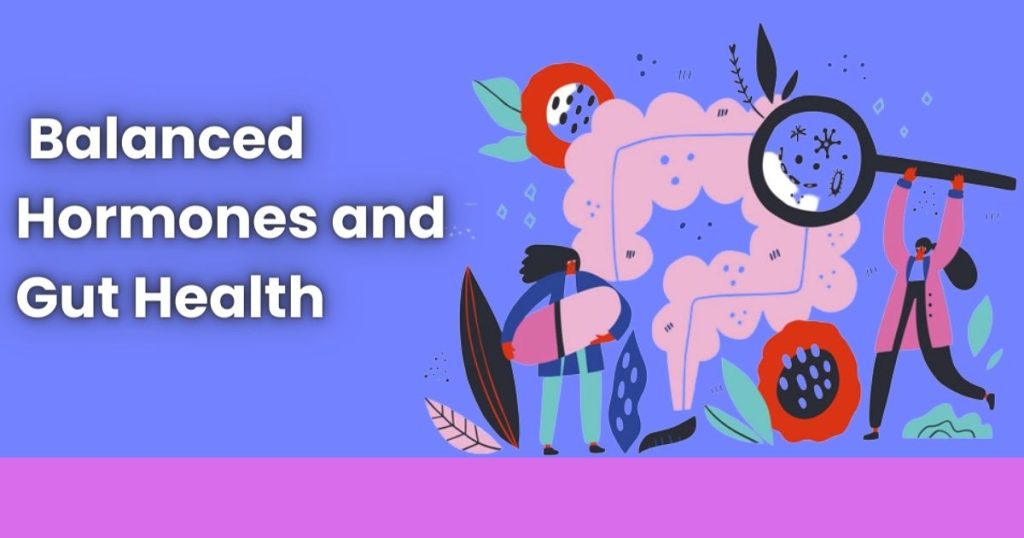Gut health is one of the most discussed health problems since people are downplaying it. In nutrition and fitness, “gut health” means gastrointestinal health. Because it works with digestion and distributes nutrients to body areas. Too many people work hard to get in shape but quit because they don’t understand gut health. The immune system is greatly affected by gut health. For this! Understanding the importance of a healthy digestive system to physical health is vital. Therefore, in this detailed article, we will discuss gut health and fitness.
What is Gut Health?
With “gut health,” we mean gastrointestinal system health (or “gut” for short). The gut breaks down food, absorbs nutrients, and removes waste. The digestive system encompasses the stomach, small intestine, colon, liver, gallbladder, and pancreas from mouth to genitalia.
The gastrointestinal system’s main components and their effects on gut health are listed below:
- Mouth: The digestive process begins in the mouth, where enzymes in saliva start breaking down food.
- Esophagus: This muscular tube carries food from the mouth to the stomach.
- Stomach: To begin digestion, food is churned in the stomach and mixed with gastric juices.
- Small Intestine: Most digestion and nutrient absorption happen here. The small intestine is lined with tiny finger-like projections called villi, which increase its surface area for efficient nutrient absorption.
- Large Intestine (Colon): The colon’s primary role is to absorb water and electrolytes from undigested food, forming stool for elimination.
- Liver: The liver plays a crucial role in processing nutrients, detoxifying the blood, and producing bile, which helps digest fats.
- Gallbladder: This small organ stores bile produced by the liver and releases it into the small intestine to aid in fat digestion.
- Pancreas: The pancreas produces digestive enzymes and hormones like insulin, which regulate blood sugar levels.
Importance of Gut Health in Fitness:
In the below section, we have briefly listed the importance of gut health in different aspects of fitness.
1. The Gut’s Role in Nutrient Absorption
A healthy stomach controls nutrient absorption. After eating, your gut, especially the small intestine, breaks down and absorbs nutrients. Vitamins, minerals, carbs, proteins, and lipids enter the bloodstream and go to cells and organs. Nutrient shortages might slow fitness progress if your gut isn’t working properly. Bodybuilders and endurance athletes need efficient nutrition absorption for muscle repair, energy production, and performance.
2. Gut Health and Weight Management
A healthy weight is essential to fitness, and your gut microbiota can affect this. Gut bacteria affect metabolism, appetite, and fat storage. A balanced gut microbiota controls appetites and optimizes calorie use, improving weight regulation. This can help you lose weight and maintain a healthy weight, an important aspect of fitness.
3. Digestive Efficiency and Energy Levels
Fitness enthusiasts understand the value of energy for their workouts. A healthy gut contributes to better digestion, which means that your body can convert the food you consume into energy more effectively. This translates to improved endurance during cardio sessions and more power during strength training. Enhanced digestive efficiency can also reduce the risk of feeling sluggish or experiencing gastrointestinal discomfort during workouts, allowing you to stay focused and perform at your best.
4. Gut Health and Immune System Support
To stick to your fitness routine, you need a robust immune system. Your gut houses a significant portion of your immune cells and acts as a barrier against harmful pathogens. A balanced gut microbiome helps maintain this defense system, reducing the risk of infections that could disrupt your training schedule. A healthier immune system means fewer sick days and more consistent workouts.
5. Reduced Bloating and Discomfort
Poor gut health can lead to issues like bloating, gas, and digestive discomfort. These symptoms can be not only uncomfortable but also distracting and demotivating during workouts. A well-balanced gut minimizes these problems, ensuring a more comfortable exercise experience.
6. Balanced Hormones and Gut Health

Hormones play a significant role in fitness progress, affecting muscle growth, fat loss, and overall energy levels. An imbalanced gut can interfere with hormone production and regulation. Overgrowth of dangerous gut bacteria can cause inflammation and insulin resistance, making muscle building and fat loss difficult. A healthy gut microbiome supports fitness goals by balancing hormones.
7. Mental Health, Gut, and Exercise
Fitness motivation and consistency affect mental wellness. The gut-brain relationship is fascinating, and a healthy gut may improve mental health. A healthy stomach reduces stress and anxiety, motivating you to exercise and live better.
8. Muscle Recovery and Gut Health
Post-workout recuperation is key to fitness growth. Gut health can reduce body-wide inflammation. This reduces muscular discomfort and speeds recovery. Thus, you can exercise more regularly and improve your fitness.
9. Gut Health for Athletes
Gut health benefits athletes especially. A healthy gut microbiome improves endurance, strength, and athletic performance. For peak-performing athletes, it improves nutrient absorption, inflammation, and energy.
10. Gut Health as a Long-Term Fitness Strategy
Finally, gut health is a strategy for long-term fitness sustainability, not just short-term improvements. A healthy stomach lets you enjoy the benefits of an active lifestyle for years. It’s essential to your health, coupled with food and exercise.
The Impact of Diet on Gut-Brain Health
The gut microbiome and mental health are shaped by diet. Fiber-rich, whole meals, and fermented foods like yoghurt support gut microbiota health. Processed meals, sugar, and chemical additives can harm gut health and mood.
Stress, Anxiety, and Gut Health
Anxiety and stress might upset your gut microbiome. Your gut bacteria can change when you’re anxious because cortisol production increases. An uneven gut flora can cause stress and anxiety, establishing a loop. Mediation, yoga, and deep breathing help improve digestive and mental health by managing stress.
Probiotics and Prebiotics
Probiotics in foods and supplements assist maintain a healthy gut microbiota. Nutritional fibers called prebiotics feed these helpful microorganisms. Consuming probiotic- and prebiotic-rich foods like yogurt, kimchi, garlic, and onions can boost gut health and happiness.
Conclusion:
Gut health is vital to fitness and a happier life. The gastrointestinal system affects nutrient absorption, weight management, energy, immunity, and mental health. Diet, stress management, and probiotics/prebiotics affect general health. Prioritizing gut health is a long-term fitness and well-being plan. A healthy gut is essential to a healthy, happy existence, even if exercise trends change. Gut health is a cornerstone of our search for a healthier life, even as fitness trends change.


